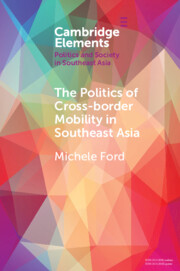Refine search
Actions for selected content:
1 results

The Politics of Cross-Border Mobility in Southeast Asia
-
- Published online:
- 12 December 2023
- Print publication:
- 18 January 2024
-
- Element
- Export citation
